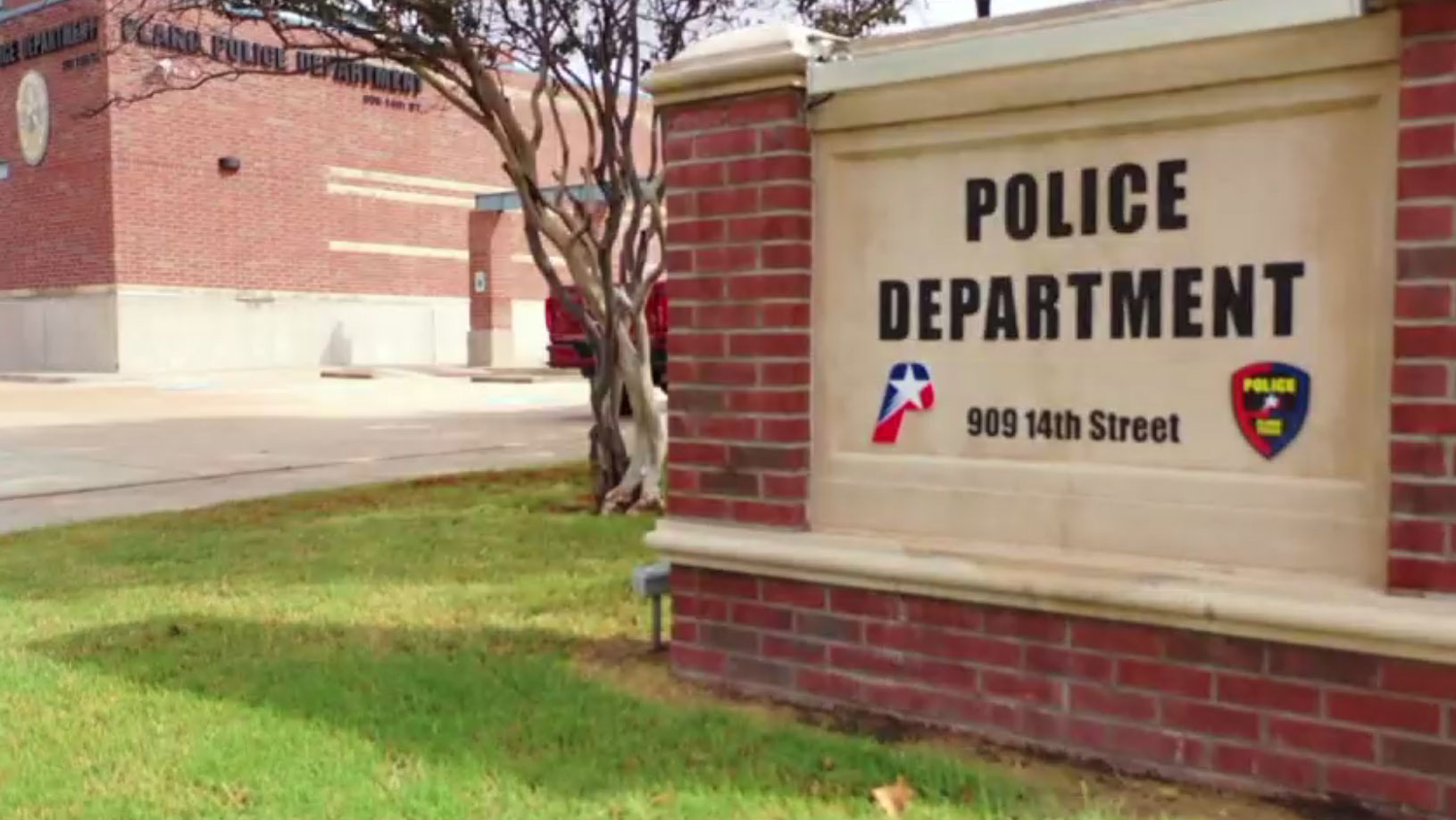An illegal sports gambling ring based in North Texas raked in $1 billion in just one year through offshore websites and a toll-free phone number that received up to 35,000 calls per month, the Internal Revenue Service says.
The case -- which may be one of the largest of its kind ever targeted by federal agents -- is detailed in a series of court filings by the IRS, which has raided homes and businesses and seized cash, fancy cars, expensive jewelry, rare coins and sports memorabilia.
No criminal charges have been filed, but an IRS agent assigned to the agency's criminal investigations division signed the seizure documents. He wrote that the seized property was part of an ongoing money-laundering investigation.
"A group of approximately 22 individuals (conspirators) have conducted an illegal gambling enterprise within the United States," an IRS agent said in court documents. "The gambling organization originated in the Dallas/Fort Worth area."
From September 2009 to September 2010, it generated "in excess of approximately $1 billion in gross wagers, resulting in approximately $50 million in illegal earnings," the government said. Prosecutors did not specify how much it made in other years but claim it began in 2002.
Several defense attorneys involved in the forfeiture proceedings said they expect prosecutors to seek indictments in the coming weeks.
Davilyn Walston, a spokeswoman for the U.S. Attorney's Office in Plano, declined to comment.
Local
The latest news from around North Texas.
Caribbean Connection
The toll-free phone numbers were leased to a telephone company in Curacao and "received an average of 20,000 calls per month with some months showing as high as 35,000 calls," the government said in court documents.
Curacao is a Caribbean island near Aruba within the Kingdom of the Netherlands.
The websites -- 25 in all -- were registered on the island by what the government described as an Internet gambling company.
Dallas Man Accused of Handling Ring's Finances
The government documents say Carl Francis, 71, of Dallas, was an "agent" of the company and shuffled millions of dollars in wagers through a Dallas bank account.
Prosecutors also claim Francis "provided bettors with personal login codes and passwords to facilitate the placement of wagers ... to disguise their identities" and conducted financial transactions through bank accounts he controlled.
From March 2010 to February 2011, the government said Francis deposited more than $5.1 million in gambling money into his account from "individual bettors, located throughout the United States."
In 2009, the government said Francis deposited about $6.3 million into the account and transferred much of it into the accounts of winning bettors.
In court documents, Francis is asking the IRS to return nearly $1.6 million it seized from him, along with a 2008 Mercedes and several computers.
Francis' attorney, Charles Blau, of Dallas, told NBC 5 that Francis was involved in the gambling operation but believed it was legal.
"The Internet operation itself is lawfully incorporated and licensed in Curacao," Blau said. "Initially, they were led to believe they were operating lawfully in that country."
Blau acknowledged Francis was working with "the people in Curacao" and that he kept detailed records.
"Nothing was hidden," Blau said.
The attorney disputed the government's description of the size of the operation.
"It's a large amount of money, but it's way south of a billion dollars," Blau said.
While the government claims Francis admitted to keeping between 15 and 20 percent "as his cut," his lawyer claims that Francis didn't get that much money himself.
"That's been misinterpreted (by the government)," Blau said.
North Texans Claim Seized Property
Court documents do not name Francis' alleged co-conspirators or provide any details about anyone else involved in the investigation.
But the records do outline whose property was seized and identify the 17 North Texans asking the IRS to return their property.
They argue that the property should never have been seized because the IRS has not shown anyone did anything illegal.
A judge has not yet ruled on the claims.
"It Was Out in the Open"
The attorney for Al Reed, a Southlake investor whose homes and office were among those raided by the IRS, acknowledged Reed became involved in the gambling business after another lawyer mistakenly told him it was legal.
Reed, 56, filed a claim for the government to return $216,915, several items of jewelry and 16 silver bars.
"These guys thought what they were doing was legal," said Reed's current attorney, Bob Hinton. "It was out in the open ... It's a victimless situation."
Hinton said many of those involved are reputable investors who had no idea they were involved in something illegal.
"It's a whole lot about very little," Hinton said. "These are very good people. These are not shady people."
The attorney added that he personally went to Curacao to investigate the operation.
"It looked like NASA," Hinton said. "It's a big room with 36 or so cubicles with people manning the telephones."
He said the operation shut down after the IRS raids.
Hinton said Reed is cooperating with prosecutors who the lawyer said are seeking to file criminal charges against some people involved in the operation.
"I think we'll settle it," he said.
"I Am a Professional Poker Player"
Gregg Merkow, a poker player who has appeared in televised tournaments, is asking the government to return jewelry, numerous gold coins and $233,300 in cash.
"I am a professional poker player and have been for a number of years," Merkow wrote in a claim. "In order to participate in this profession, it is necessary to have a cash hoard which is accessible on short notice ... Part of the money is my cash hoard which I have accumulated over the last 20 years or so."
Merkow, 48, of Plano, said he kept records of his wins and losses but that IRS agents who searched his home apparently took the documents.
He also sought to explain where he obtained numerous collectible coins that were seized by agents.
For example, he said a $100 coin minted in 1915 was "received by me at the death of my mother ... I've owned this coin for over 20 years and it was in my family prior to me receiving it."
Merkow also noted in the court papers that he had other sources of income. He said he owned two restaurants on Greenville Avenue in Dallas that burned in 2010.
Merkow did not answer his phone number listed in the court documents and his attorney, Jerry Biesel, did not return a message left at his Dallas office.
Others Claim Seized Property
Among the other people making sizable claims:
-- Robert E. Hodges, 49, of Addison, wants the IRS to return $649,200, two computers, an autographed Pete Rose jersey, an autographed Derek Jeter jersey and a box of collectible coins.
"The funds seized by the IRS are not connected with any illegal activity," his attorney William Roberts wrote. "Mr. Hodges has not engaged in criminal activity."
Another Hodges' attorney, Rob Jackson, told NBC 5, "We got lumped in" with others in the investigation. He declined to discuss the case in detail.
-- Neil Gerson, 51, of Frisco, asked the government to return $391,454 and a notebook computer.
"Neil Gerson has the right to make this by virtue of the fact that the property above belongs to him," his attorney wrote. "Claimant would further show that no probable cause existed for the seizure."
Gerson's attorney, Dan Hagood, did not return a phone call seeking comment.
-- Brent Coralli, 47, of Plano, is claiming $143,000 and a Rolex watch that was seized by the IRS.
His attorney, Michael Uhl, a former federal prosecutor, did not return a call seeking comment.
Second Seizure
The IRS said after its initial raids on March 2, 2011, Francis continued the operation.
"Since March 3, 2011, Francis continued to operate his illegal gambling business, relocating his website to Costa Rica and his financial accounts to (another bank)," the government said in the court documents.
In January 2012, IRS agents seized more money and property.
Website, Phone Number, Still in Operation
The website the IRS accused Francis of operating, DMNonthenet.com, is still online.
The Web page bills itself as "the best sports action on the net" and includes a "player login" and password.
A toll-free number after the word "wagering" was answered when a reporter recently called it.
Francis' attorney said his client sold the website in late 2011 and no longer has anything to do with it.
"We said, 'Enough,' and got out," the lawyer said.



